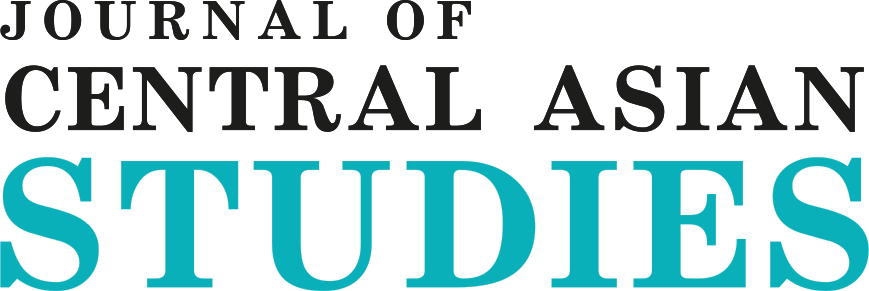U.S. Cooperation with Central Asian Countries within the C5+1 Initiative: Trends and Prospects
DOI:
https://doi.org/10.52536/3006-807X.2024-1.06Keywords:
C5+1 Initiative, Central Asia, U.S. foreign policy , geostrategic position, international relationsAbstract
The article examines the United States’ engagement with Central Asian countries through the C5+1 initiative, highlighting its evolution, challenges, and strategic implications. Central Asia's significant geostrategic position and history have made it a focal point for global powers. The C5+1 initiative, encompassing the U.S. and five Central Asian nations, represents a strategic realignment of U.S. policies in the region post-9/11. This initiative aims to balance the dominant Russian influence and China’s growing economic power. The article explores how the C5+1 initiative has established foundational frameworks for cooperation, addressing a range of issues from economic development to security concerns. The analysis underscores the initiative's role in shaping U.S. foreign policy towards Central Asia, considering regional dynamics and international relations.
References
Central Asia Energy Links. (2023, November 8). Retrieved from https://www.ecodit.com/ProjectDetails/?contId=108195
DFC, Uzbekistan, and Kazakhstan Announce Central Asia Investment Partnership to Bolster Investment in the Region. (2023, November 8). Retrieved from https://www.dfc.gov/media/press-releases/dfc-uzbekistanand-kazakhstan-announce-central-asia-investment-partnership
Hopkirk, P. (2006). The Great Game: On Secret Service in High Asia. London: John Murray.
Joint Statement on the Kazakhstan-United States Enhanced Strategic Partnership Dialogue. (2023, November 8). Retrieved from https://kz.usembassy.gov/joint-statement-on-the-kazakhstan-united-statesenhanced-strategic-partnership-dialogue/
Olkott, M. (2005). Vtoroj shans Central'noj Azii. Moscow: Vashington: Moskovskij Centr Karnegi.
Pomfret, R. (2019). The Central Asian Economies in the Twenty-First Century: Paving a New Silk Road. Princeton: Princeton University Press.
Sitenko, A. (2023, November 8). The Central Asian states are stepping up their game. Retrieved from https://www.ips-journal.eu/topics/foreign-and-security-policy/the-central-asian-states-are-stepping-up-theirgame-7020/
U.S. Strategy for Central Asia 2019-2025: Advancing Sovereignty and Economic Prosperity. (2023, October 29). Retrieved from https://kz.usembassy.gov/u-s-strategy-for-central-asia-2019-2025-advancingsovereignty-and-economic-prosperity/
US, Central Asia Affirm Joint Commitment to Strengthen Trade and Investment Ties. (2023, November 8). Retrieved from https://astanatimes.com/2023/03/us-central-asia-affirm-joint-commitment-to-strengthentrade-and-investment-ties/
USAID Regional Water and Vulnerable Environment Activity. (2023, October 29). Retrieved from https://www.usaid.gov/fact-sheet/usaid-regional-water-and-vulnerable-environment-activity-fact-sheet
Downloads
Published
Issue
Section
License
Copyright (c) 2024 Kakenova Z.

This work is licensed under a Creative Commons Attribution 4.0 International License.









 Open content is licensed under the CC-BY
Open content is licensed under the CC-BY 


